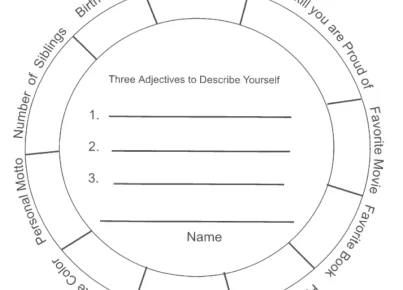In today’s fast-paced, success-driven society, educators often find themselves under immense pressure to be perfect. From ensuring every student excels academically to meticulously planning and executing each lesson, the quest for perfection in teaching is an all-too-common stressor. However, it is important to remember that you don’t have to be a perfect teacher. In fact, embracing your imperfections may lead to a more authentic and effective teaching experience.
It can be a humbling experience to admit our imperfections as teachers. However, doing so can lead to deeper connections with our students, enhanced learning environments, and ultimately more successful classroom outcomes. Below are some key reasons why it’s not only okay but also beneficial—to be an imperfect teacher.
1. Authenticity builds connections with students
When teachers display vulnerability and admit their imperfections, they appear more human and relatable to their students. This authenticity fosters a sense of trust between teachers and students, fostering stronger relationships and creating an environment where learning thrives.
2. Modeling self-improvement encourages growth mindset
By acknowledging areas of improvement and striving towards betterment, teachers demonstrate the value of a growth mindset—one in which challenges are embraced, and personal development is prioritized. Students observing this behavior are more likely to adopt the same mindset, recognizing that they too can grow their skills through effort and determination.
3. Flexible thinking promotes problem-solving skills
Adopting an imperfect approach means that a teacher is willing to alter their strategies or explore new ideas when something doesn’t work as expected. This flexibility not only benefits the teacher but also helps demonstrate the importance of adaptability to students—essential skill in today’s constantly changing world.
4. Mistakes create valuable learning opportunities
When a teacher makes mistakes or encounters challenges in the classroom, they have the unique opportunity to turn these experiences into teachable moments. By reflecting on the errors, analyzing them, and determining how to move forward, both teachers and students can grow their problem-solving skills and develop resilience in the face of setbacks.
5. Burnout prevention through self-compassion
Recognizing that perfection is an unrealistic goal allows teachers to practice self-compassion. By acknowledging their imperfections and not putting unnecessary pressure on themselves, teachers reduce their risk of burnout—a major issue among modern educators.
In summary, it’s crucial for educators to recognize that they don’t have to be perfect teachers. Embracing imperfection can lead to more authentic connections with students, promote a growth mindset, foster problem-solving skills, create valuable learning opportunities from mistakes, and prevent burnout. There is beauty in imperfection—both for ourselves as educators and for the students we serve. So, embrace your imperfect teaching journey and watch as it unfolds into a rewarding and transformative experience for you and your students alike.





